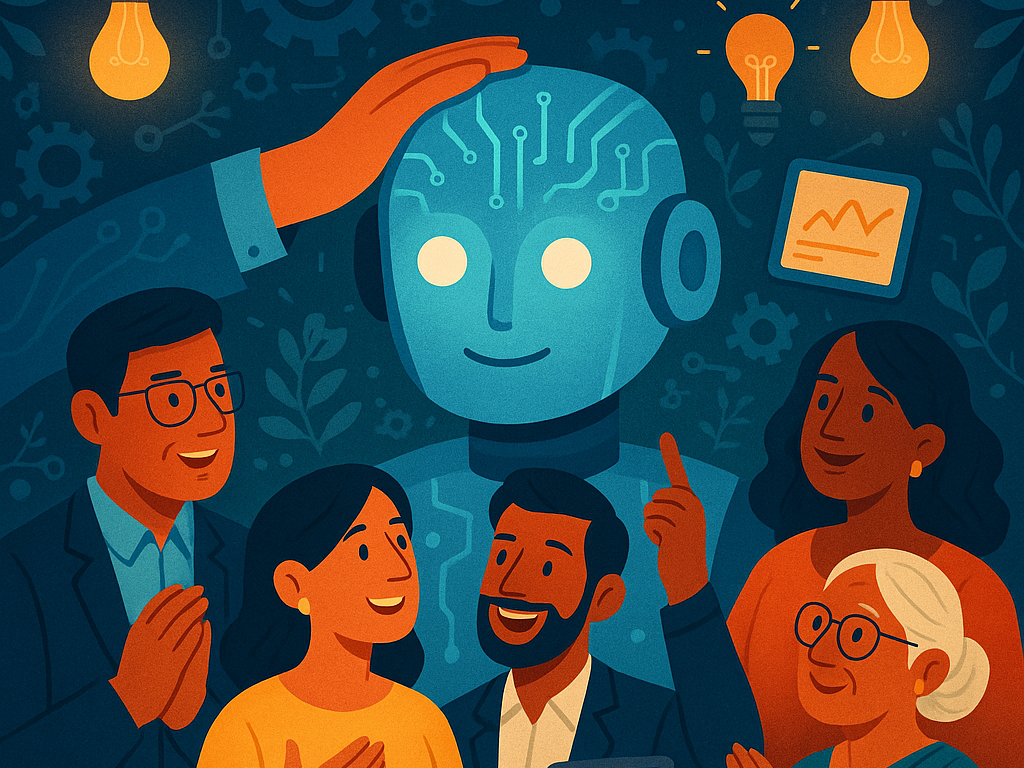From personalized medicine to smart mobility and enterprise innovation, leaders across industries reflect on AI’s transformative journey and its promise for the future.

On AI Appreciation Day, industry leaders across sectors—from enterprise tech and digital health to education, agriculture, and cybersecurity—gathered around a shared belief: that artificial intelligence is not just reshaping technology, but unlocking human potential at scale.
“AI has transitioned from a futuristic vision to a powerful force multiplier,” said Srinath Venkatesh Nadkarni, SVP – Data & Analytics at Indium. “At Indium, our ‘AI-first’ approach enables business outcomes, accelerates engineering, and enhances internal operations.”
This sentiment echoed across the board, with Kumar Vikas, EVP, AI Delivery at Bounteous x Accolite, noting: “On AI Appreciation Day, we celebrate not just technology, but the human ingenuity and collaboration that bring AI’s true potential to life.” He cited a recent study by Forrester and Bounteous x Accolite revealing that 84% of companies plan to increase AI and data investments in 2025.
For small businesses, AI is already a silent teammate. As Laka Sriram, VP of Product at GoDaddy, shared, “AI agents act as dedicated workers… helping business owners save time, streamline decisions, and focus on their passions.”
AI’s impact in the public sphere and agriculture is no less impressive. Ranjith Mukundan, CEO of Stellapps, described their work digitizing India’s dairy supply chain with AI-enabled traceability for 3.5 million farmers. “What we’re building is not just a tech platform, but a connected ecosystem—from cow to consumer.”
For India’s workforce, AI is opening new frontiers. Murugan Anjunan, CTO of HerKey, emphasized: “AI helps us reimagine how women return to, remain in, and rise within the workforce… The future of work is not just AI-powered, it’s human-first, AI-enabled.”
In the world of education and talent, Nishant Chandra, Co-founder of Newton School, added, “AI won’t just reshape jobs—it’s already redefining how we learn. To lead the AI revolution, India must shift to skill-first, project-based learning.”
Dinesh Ajmera, Site Leader & VP of Engineering at Confluent India, captured the broader ambition: “The real promise for India lies in turning AI into everyday opportunity—training in local languages, access for all, and systems that convert curiosity into impact.”
Still, AI must be guided with responsibility. Sujatha S Iyer, Head of AI Security at ManageEngine, warned: “This is a pivotal moment to embed responsible AI that prioritizes trust, transparency, and meaningful upskilling.”
Cybersecurity, in particular, is navigating the double-edged nature of AI. Fabio Fratucello of CrowdStrike explained, “AI is lowering the barrier to entry for adversaries… but it’s also enabling security teams to disrupt threats proactively. Our Charlotte AI saves analysts up to 40 hours per week.”
From the enterprise front, Dr. Adnan Masood of UST noted, “Generative AI democratizes creation; agentic AI democratizes execution. The future belongs to humans with AI, not AI with humans.”
For AI to work, the foundation must be right. Matthew Oostveen, CTO at Pure Storage, observed: “Messy data means messy AI. Real progress comes not from adopting the latest tool, but from building the right data infrastructure and culture.”
AI is also becoming hyper-local. Ganesh Gopalan of Gnani.ai highlighted efforts to bridge India’s linguistic diversity: “Voice AI and small language models are democratizing digital access and transforming how India speaks, learns, and transacts.”
Whether in warehouse robotics, smart cities, or healthcare, AI is amplifying possibility. As Sriram Kannan of Routematic put it: “The next decade will be defined not by automation, but by the intelligence with which we apply it to empower people.”
Praveer Kochhar of KOGO AI perhaps summarized it best: “AI has gone from backend tool to active collaborator… The blockers are out. What’s ahead is a kind of innovation we haven’t yet imagined.”